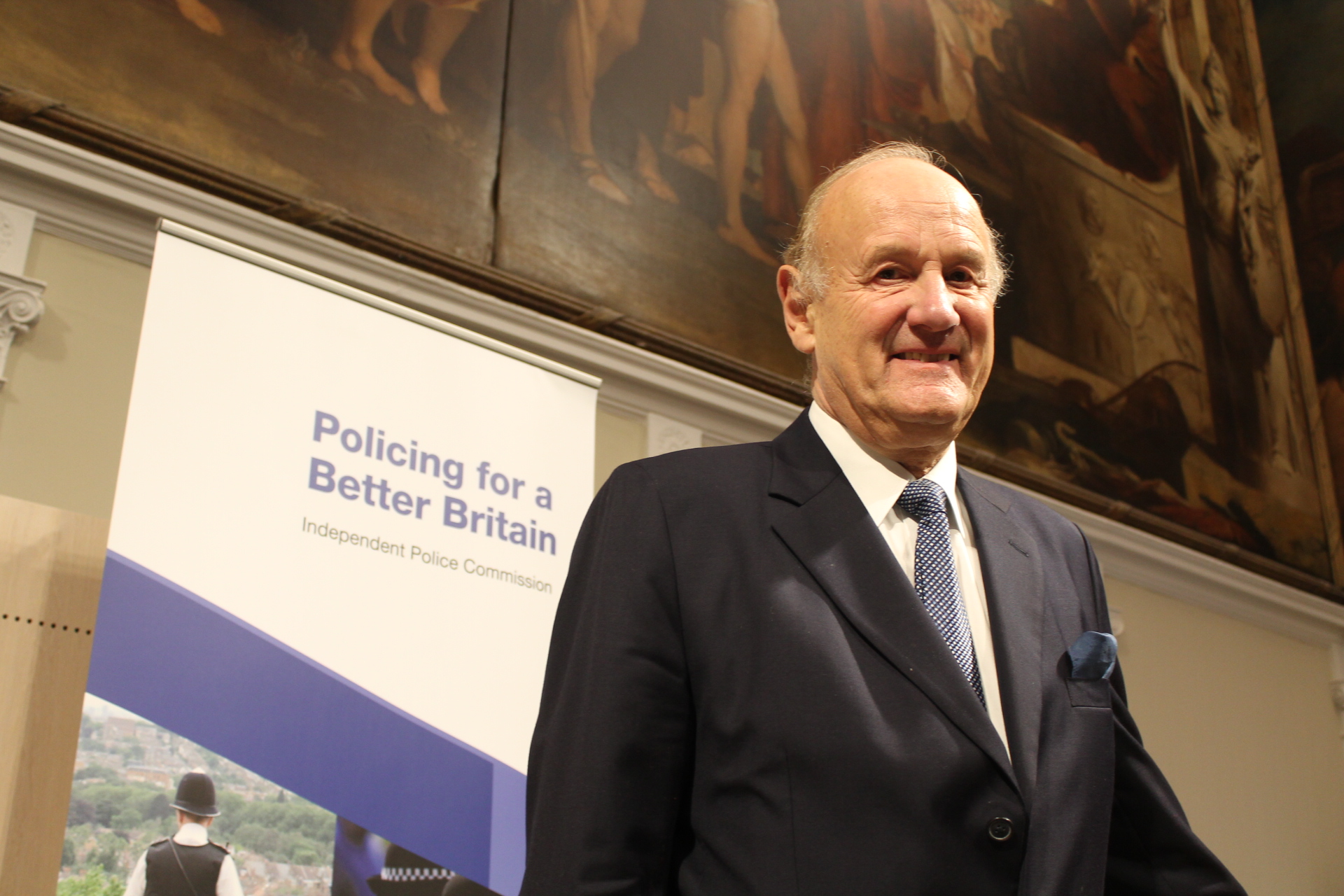“Chartered cops would professionalise policing”
POLICE officers achieving “chartered” status – like accountants or lawyers – would “professionalise” the job, according to policing heavyweight Lord Stevens.
The former Met commissioner (pictured) told MPs that in more than 40 years of working in policing, the job has, in his opinion, “never been a profession”.
He said introducing a chartered status – which would cost officers cash to achieve – would help address this.
Lord Stevens was speaking to the Home Affairs Select Committee about his Independent Police Commission, commissioned by the Labour Party and published at the back end of 2013.
Lord Stevens said: “Everybody has been talking about the professionalisation of police. We all have. We really wanted to address it. The idea came that there should be a raising of the professional status of a police officer, similar to chartered accountants and others.”
He said police officers becoming chartered would help to recognise the judgement and professionalism police officers use “every day of the week.”
Officers would need to register with the College of Policing paying a “small” fee. As part of a professional register, officers found to have committed serious misconduct could be struck off.
Addressing concerns from the Police Federation of England and Wales, Lord Stevens said a chartered status for police officers “does not affect the office of constable.” He went on to tell MPs it would “enhance it.”
Prof Ian Loader, Professor of Criminology and Professorial Fellow of All Souls College, Oxford, and a member of the Independent Commission was also at the Home Affairs Select Committee.
He said: “Ultimately the College of Policing – which the report does endorse – has to find a way of becoming self-financing.
“The suggestion we make in the report is that, in the same way as any other professional association, in the way that Lawyers pay to become members of the Law Society or medics the Royal College of Medicine, you can reasonably expect police officers pay a small amount of money to the College of Policing in order to be its members.
“They can continue to be part of the Police Federation, because the Federation does a different kind of job, that the College does not do. The College’s job is to work out what kind of standards police officers at different ranks should have. And our proposal is to have a publically available register of officers and the kind of skills that they have.”
Prof Loader added at the meeting on January 7: “When you charter police officers you also create the possibility that in cases of extreme malpractice you can be struck off – in other words you can no longer continue to serve as a police officer in any force.”
It is likely that many of the 37 recommendations made in the Independent Police Commission will be adopted should the Labour Party come to power after the General Election in 2015.

